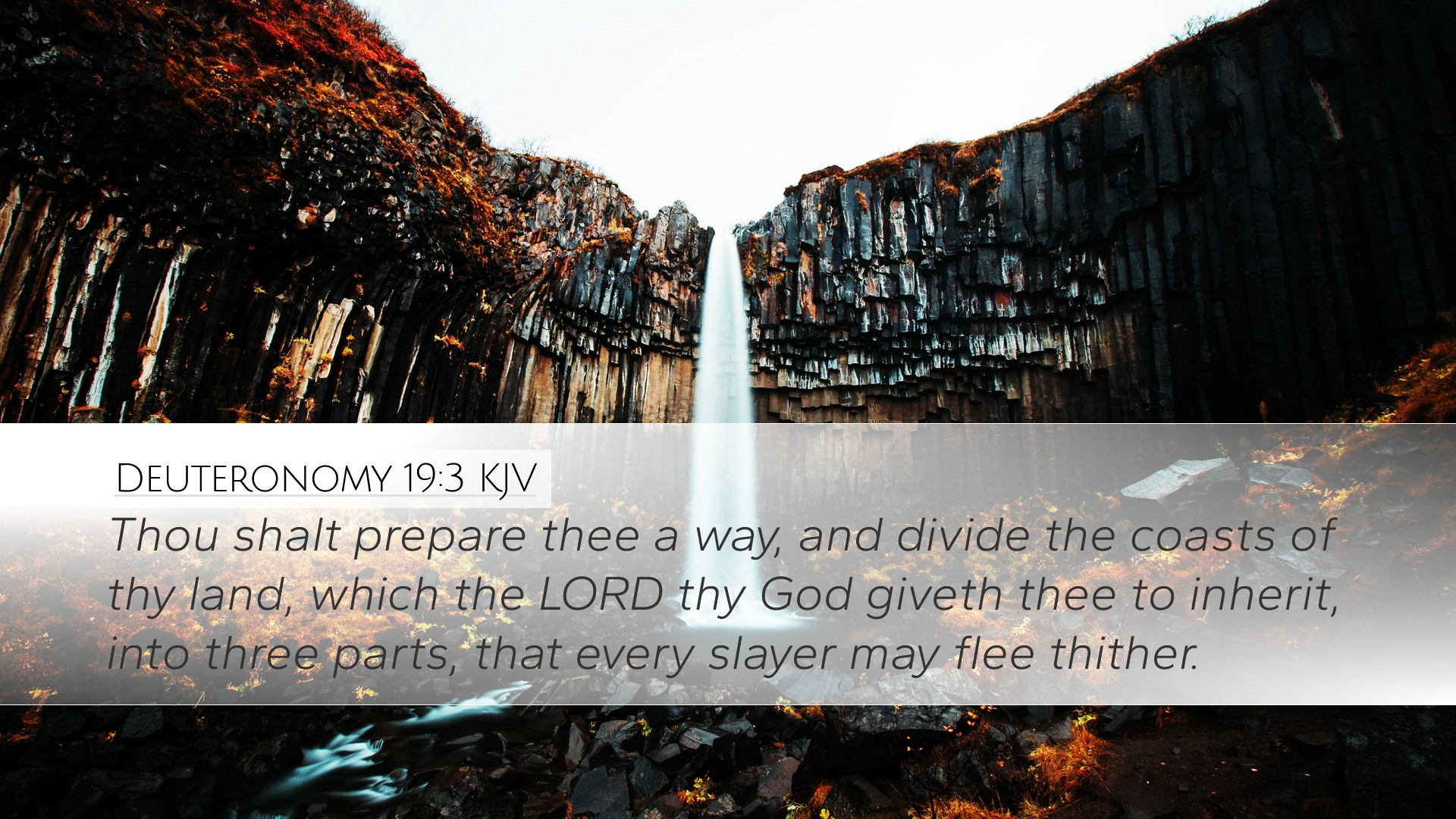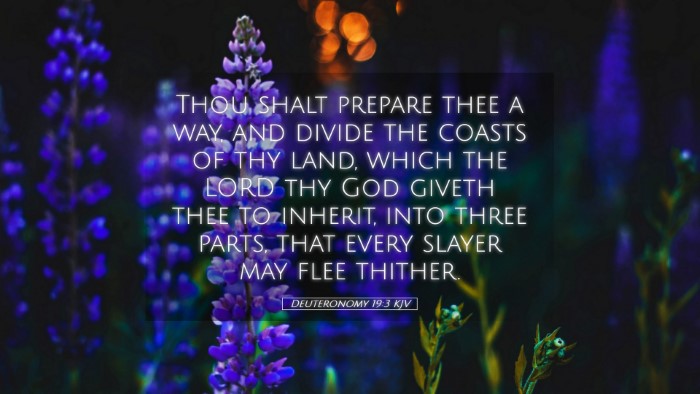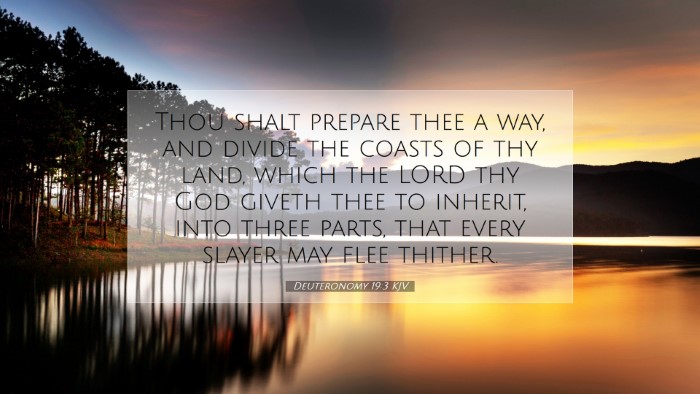Commentary on Deuteronomy 19:3
Verse Context: Deuteronomy 19:3 states, "Thou shalt prepare thee a way, and divide the coasts of thy land, which the LORD thy God giveth thee, into three parts, that every slayer may flee thither." This verse sets the premise for the cities of refuge that were established for those who unintentionally committed manslaughter, providing a means of protection.
Overview of the Cities of Refuge
The Cities of Refuge were designated locations within Israel where individuals accused of unintentional manslaughter could seek asylum. This legislation underscores God's concern for justice and mercy, allowing for a system that differentiates between murder and manslaughter.
Insights from Matthew Henry
Justice and Mercy: Matthew Henry emphasizes the significance of these cities as a divine provision that reflects God's justice and mercy. He notes that the cities serve as a safeguard for innocent people, ensuring that one who acts without malicious intent can find sanctuary. Henry points out that these cities illustrate God's desire for the preservation of life even amid sin and error.
Preparation and Responsibility: Henry also highlights the call to prepare a way. This phrase implies a proactive approach to justice, where the Israelites must take responsibility for creating a system that prevents the spilling of innocent blood. The organization of the cities demonstrates the need for deliberate steps in maintaining social order and justice.
Insights from Albert Barnes
Divine Regulation: Albert Barnes comments on the format and structure of the cities of refuge. He notes that God commanded the Israelites to divide their land into specific portions for this purpose, indicating divine regulation in societal matters. Barnes argues that such delineation shows God’s thorough understanding of human potential for conflict and the need for a structured resolution to disputes.
Symbolism: Barnes elaborates on the symbolic nature of these cities. He views them not just as physical locations but as representations of God's mercy. The priesthood's role in these cities serves as a reminder of the mediation between God and man, palpably illustrating how refuge is accessible through faith.
Insights from Adam Clarke
Community Responsibility: Adam Clarke stresses the communal aspect of placing cities of refuge within the land. He asserts that every tribe held a responsibility to ensure these cities were accessible, which fosters a sense of unity and collective responsibility among the Israelites. Clarke emphasizes that this shared duty reflects the communal nature of justice in the ancient Israelite society.
Accessibility: Clarke further notes the locations of these cities were carefully chosen to guarantee that no one would be too far from refuge. This illustrates God's concern for the outcast and the importance of making forgiveness and safety available to all, regardless of their circumstances.
Theological Significance
The provision of cities of refuge resonates deeply with the broader themes of justice, mercy, and redemption found throughout Scripture. The cities not only serve as historical and cultural institutions but also foreshadow the ultimate refuge found in Christ.
- Justice and the Law: The cities reflect the balance that must be upheld between justice and mercy in the administration of the law.
- Mediation Through Christ: Just as the cities provided refuge from the avenger, believers find refuge in Christ, who mediates between God and humanity.
- Community and Individual: The cities encourage a balance between community responsibilities and individual needs, teaching that justice is both a communal action and an individual right.
Practical Applications
Pastors, students, and theologians can draw several practical applications from Deuteronomy 19:3:
- Advocacy for Justice: The establishment of cities of refuge encourages contemporary Christians to advocate for justice systems and social policies that protect the marginalized and vulnerable.
- Mercy in Conflict Resolution: The principle of providing refuge should guide how believers address and mediate conflicts within their communities.
- Awareness of Unintentional Harm: The clear distinction between intentional and unintentional acts calls Christians to a heightened awareness of the impact of their actions on others.
- The Assurance of Refuge in Christ: For believers, the cities of refuge point to a greater truth: that through faith in Christ, we find ultimate safety and mercy from the consequences of sin.
Conclusion
In summary, Deuteronomy 19:3 reveals much about the nature of God’s justice and mercy. By understanding the provisions surrounding the cities of refuge, we grasp a biblical foundation upon which to advocate for restorative justice in our communities. Drawing from the insights of Matthew Henry, Albert Barnes, and Adam Clarke enriches our appreciation for this text and its application in contemporary contexts.


